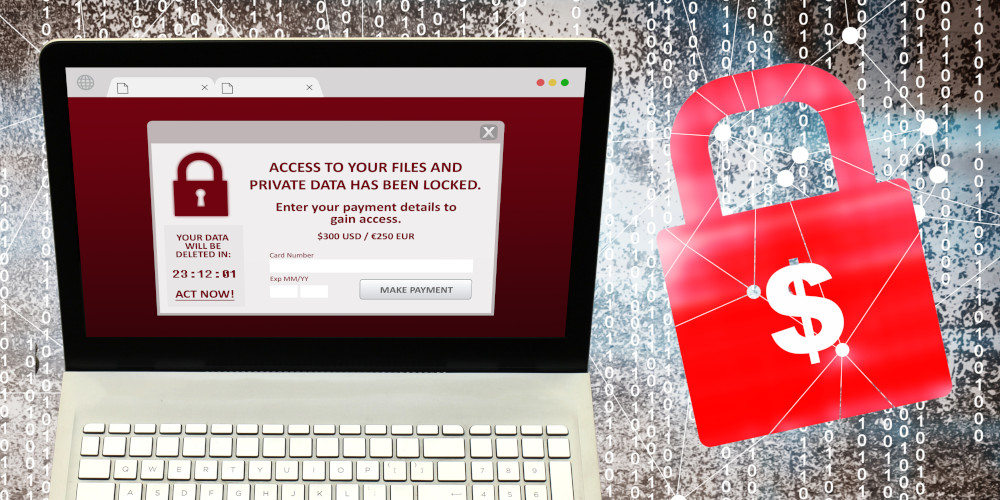In the fast-paced world of small business, where every decision can impact your bottom line, the rise of ransomware attacks has brought forth a challenging dilemma: To pay or not to pay?
Ransomware, a malicious software that locks up your critical data until a ransom is paid, presents both ethical and financial quandaries for business owners. In this article, we’ll delve into this complex issue, discuss the pros and cons of paying ransoms, and shed light on how cyber insurance plays a pivotal role in these difficult decisions.
Understanding Ransomware Attacks
Before we delve into the tough decisions surrounding ransomware, it’s essential to understand what these attacks entail. Ransomware is malicious software that encrypts a victim’s data, rendering it inaccessible. Cybercriminals then demand a ransom, typically in cryptocurrency, in exchange for the decryption key. The victim faces a critical choice: pay the ransom and hope for the data’s safe return, or refuse to pay and attempt data recovery through other means.
The Ethical Dilemma: Paying Ransoms
Pros of Paying Ransoms
Paying the ransom may result in a faster and more reliable data recovery process. Cybercriminals often provide decryption keys upon payment.
Paying the ransom can shorten the downtime and minimise operational disruptions, allowing the business to resume normal activities sooner.
Cons of Paying Ransoms
There’s no guarantee that cybercriminals will provide a working decryption key or honour their end of the bargain.
Paying ransoms directly funds cybercriminal organisations, encouraging further attacks.
Paying ransoms may violate laws and ethical standards in some jurisdictions, leading to legal consequences.
The Financial Dilemma: Impact on Your Bottom Line
Pros of Paying Ransoms
Paying the ransom may seem financially viable compared to the potential losses from prolonged downtime or data loss.
The costs associated with negotiating with cybercriminals might be lower than the expenses of data recovery and system restoration.
Cons of Paying Ransoms
The actual cost of paying the ransom can vary, and there may be additional hidden costs associated with dealing with cyber criminals.
Paying ransoms without proper consultation with your cyber insurance provider could result in claim denial or increased premiums.
The Role of Cyber Insurance
Cyber insurance plays a critical role in this dilemma. Here’s how:
Financial Protection
Cyber insurance can cover the costs of ransom payments, helping ease the financial burden in the event of an attack.
Risk Assessment
Insurers often assess your cybersecurity measures as part of the policy process. A strong cybersecurity posture may lead to better coverage terms.
Expert Guidance
Cyber insurance providers often have experts who can guide you through the decision-making process when faced with a ransomware attack.
The Way Forward for Small Business Owners
The decision of whether to pay a ransom is highly complex and should not be taken lightly. Here are some steps to consider:
- Preventive Measures: Invest in robust cybersecurity measures to reduce the risk of ransomware attacks, including employee training, regular software updates, and network security.
- Cyber Insurance: Consider cyber insurance as a safety net. Review your policy carefully to understand what it covers in case of a ransomware attack.
- Legal Consultation: If faced with a ransomware attack, consult legal experts to understand the legal implications of paying a ransom.
- Ethical Considerations: Weigh the ethical aspects of paying ransoms and consider the potential consequences for your business’s reputation.
- Incident Response Plan: Develop a detailed incident response plan to handle ransomware attacks effectively, including communication with stakeholders.
In the world of small business, where every resource counts, the decision of whether to pay a ransom demands careful consideration. Balancing financial pressures, legal obligations, and ethical principles is no small feat. Cyber insurance can be a valuable ally in this struggle, offering financial support and expert guidance.
Ultimately, the best defence against ransomware is a proactive one. By investing in cybersecurity measures and having a well-thought-out response plan, you can reduce the likelihood of facing this daunting dilemma. Remember, when it comes to ransomware, prevention is often the most cost-effective solution.
Don’t leave your business vulnerable to cyber threats. Contact KeyTech today to schedule a cybersecurity audit and strengthen your digital defences.

